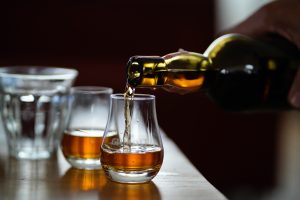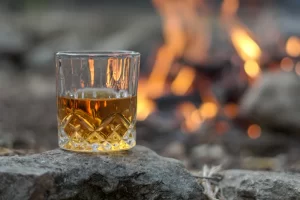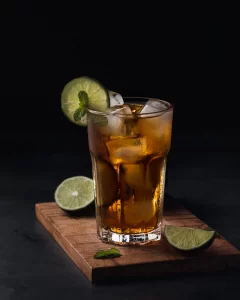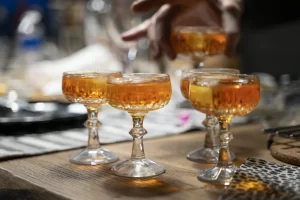North Carolina Liquor Laws And Regulations
Wondering what the North Carolina liquor laws and regulations are? If you’re currently thinking about opening up a liquor store in North Carolina, plan on starting your very own distillery or simply want to go out for a drink and explore the bars – it’s a good idea to familiarize yourself with North Carolina liquor laws.
This is where we come in to help. In this article, we are going to be talking you through all of the main liquor laws and regulations in the North Carolina area. This includes everything from the minimum drinking age to consume alcohol, distillery requirements as well as licensing fees and more.
So, whenever you’re ready, just keep on reading to discover everything that you need to know!
Is North Carolina A Controlled Liquor State?
Yes, North Carolina is a controlled liquor state. This means that North Carolina is part of the NC ABC Commission which provides total control over the transportation, manufacturer, consumption and possession of all alcoholic beverages in the state.
To be more specific, nationally, it is also worth keeping in mind that North Carolina is also one of the 17 states and jurisdictions in the United States of America that is considered to also be a part of the National Alcohol Beverage Control Association.
All that being said, it should come as no surprise to hear that there are a variety of strict rules and regulations in North Carolina that you might not find in the majority of other states within the United State of America.
For example, unlike other states and jurisdictions in the United States of America, North Carolina does not allow happy hour, which means that North Carolina does not currently allow free or reduced drink prices at certain hours.
As an alternative, alcoholic beverage promotions and deals are only allowed to be offered for an entire day, and must be available across all areas of the business.
Still, despite this, there are certain drink specials that are not currently allowed in North Carolina including two for one deals, buy one, get one free deals and deals that provide a free alcoholic beverage with a particular purchase.
Plus, along with all of the above, it is also important to keep in mind that if you do not hold a permit in North Carolina – the amount of alcohol that a person is allowed to consume in one go is limited to the following: no more than 80 liters of malt beverages, no more than 50 liters of unfortified wine, no more than 8 liters of fortified wine or spirit alcohol, as well as no more than eight liters of any two combined.
What Are The Cut-Off Drinking Times In North Carolina?

While there is currently no law against drinking at any time during private events as well as at home, it is very important to keep in mind that there is currently a 2am cut-off for all establishments that are permitted to sell and serve alcoholic beverages.
Due to this, it means that it is illegal to sell or serve alcohol after 2am in establishments such as bars and restaurants.
Along with all of the information that we have shared above, it is also important to keep in mind that all tables, counters, bars and more must also be free of any and all alcohol by the time of 2:30am.
If there is still any alcoholic beverages or alcohol still present after this cut-off time, then this is totally illegal and is breaking the law.
North Carolina Licensing Requirements And State Fees
If you want to sell, manufacture or distribute alcohol in North Carolina, you are going to be required to get a license. Keep in mind, before applying, it is important that you ensure that the owner of the company that is making the liquor license application is at least nineteen years of age.
As well as this, it is also a requirement that the owner provides their fingerprints (usually, this is only acceptable in the form of fingerprint cards) in order to go through with the ABC permit application successfully.
In addition to all of the above, please keep in mind that you will be required to pay a fee of $38. After you have submitted your application, it will then be up to the discretion of the North Carolina ABC Commission as to whether or not you will have your application approved or denied.
More often than not, the North Carolina ABC Commission will typically require a variety of documents in order to determine whether or not a company is going to be suitable for a liquor license, including ID of the owner, company’s formation documents, inspection compliance forms and many other documents.
It is also worth noting that there are a few different types of liquor licenses that can be granted in North Carolina:
Retail Permits
These licenses are required if a business is going to be selling alcohol at a retail convenience store. This includes places such as restaurants, wineries, bars and more.
Commercial Permits
These licenses are suitable for companies that are going to be involved in the distribution of alcoholic beverages, the manufacturing of alcoholic beverages, the bottling of alcoholic beverages and the importation of alcoholic beverages.
North Carolina Distillery Rules And Regulations

Thinking of starting your very own distillery in North Carolina? If you are, then this section is for you. At the time of writing, it is currently legal for people and companies to have their distilleries for alcohol manufacturing and distribution.
However, keep in mind that you will need to make sure that your business has the appropriate commercial license in order to be able to legally do this.
However, despite the fact that it is legal for companies and individuals to have their own distilleries in North Carolina, it is prohibited to use a distillery to make moonshine.
If a distillery is found making moonshine in the North Carolina area, then this will be considered an illegal act which may lead to the commercial license being revoked, a hefty fee being charged by the state and even more legal action being pursued if the crime is severe enough.
The Bottom Line
Now that you have read through this guide, we hope that we have been able to clear up any confusion that you may have had surrounding the rules and regulations in North Carolina with regards to liquor. Thanks for reading!









